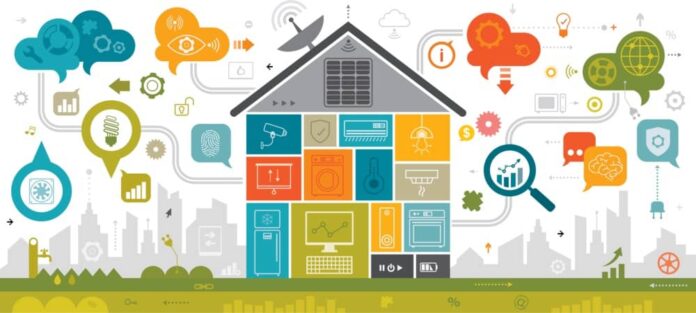Mumbai, a bustling metropolis known for its fast-paced lifestyle and rapid urbanization, is facing the daunting challenge of balancing growth with sustainability. As the city’s population continues to swell, the demand for energy and resources intensifies, putting a strain on the environment. However, a glimmer of hope emerges in the form of smart homes – a technological revolution that holds the potential to transform our living spaces into eco-conscious havens.
Smart Homes: More Than Just Convenience
While smart homes are often associated with convenience and luxury, their environmental impact is a crucial aspect that deserves our attention. These technologically advanced abodes can play a significant role in reducing our carbon footprint and conserving precious resources. Let’s delve deeper into how smart homes are contributing to a greener Mumbai:
- Energy Efficiency: The Cornerstone of Sustainability
Smart thermostats, lighting systems, and appliances are revolutionizing energy consumption in Mumbai households. These intelligent devices learn our usage patterns, optimize energy usage based on occupancy and weather conditions, and even turn off devices when not in use. The result? A significant reduction in energy waste and lower electricity bills.
- Water Conservation: A Precious Resource
Mumbai, like many other cities, faces water scarcity challenges. Smart irrigation systems equipped with moisture sensors can automatically adjust watering schedules based on real-time weather data and soil conditions, ensuring that plants receive just the right amount of water. Additionally, smart leak detectors can promptly alert homeowners to any leaks, preventing water wastage and potential damage.
- Waste Reduction: A Step Towards a Circular Economy
Smart homes can contribute to waste reduction in several ways. Smart appliances with predictive maintenance capabilities can identify potential issues before they escalate, extending the lifespan of devices and reducing the need for replacements. Furthermore, smart bins can track waste patterns and optimize collection routes, minimizing unnecessary trips and fuel consumption.
- Air Quality Monitoring: A Breath of Fresh Air
Mumbai’s air quality is a growing concern. Smart air purifiers with built-in sensors can monitor indoor air quality and automatically adjust their operation to remove pollutants, allergens, and harmful gases. By ensuring clean and healthy indoor air, smart homes are promoting a healthier lifestyle for Mumbaikars.
Challenges and Considerations
While the potential of smart homes for environmental sustainability is undeniable, it’s important to acknowledge the challenges. The production and disposal of electronic devices contribute to e-waste, a growing global concern. It’s crucial to choose smart home products from reputable companies that prioritize sustainability in their manufacturing processes and offer recycling programs for end-of-life devices.
The Way Forward: A Collective Effort
Creating a sustainable Mumbai through smart homes requires a collective effort from individuals, businesses, and policymakers. As consumers, we can make informed choices by selecting energy-efficient appliances, using smart home features responsibly, and recycling e-waste. Businesses can focus on developing eco-friendly smart home products and promoting sustainable practices. Policymakers can incentivize the adoption of smart home technology through tax breaks or subsidies.
Conclusion
The future of Mumbai’s environmental sustainability is intertwined with the rise of smart homes. By embracing these technological advancements and adopting a conscious approach to energy and resource consumption, we can pave the way for a greener and more sustainable city. Let’s harness the power of smart homes to create a Mumbai that thrives in harmony with nature.


